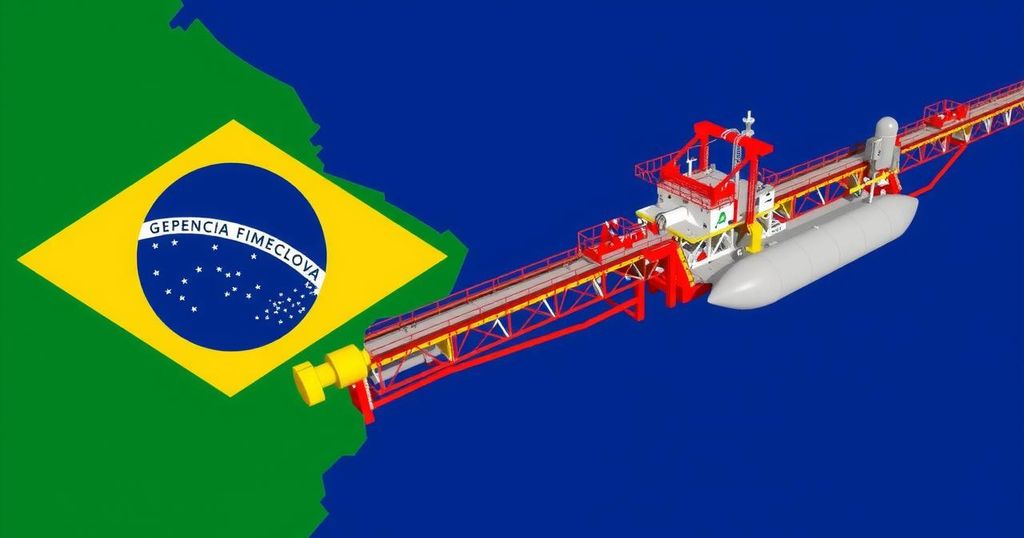Companies
ARGENTINA, AUSTRAL, AUSTRAL AND NEUQUEN BASINS, BOLIVIA, BRAZIL, BUENOS AIRES, CUBA, ELIANA RASZEWSKI, ENERGY, GRUPO MATRIX ENERGIA, HSSE, INDUSTRIAL COMPETITIVENESS, INDUSTRY, LUCINDA ELLIOTT, MARTA NOGUIERA, MATRIX ENERGIA, MINING, MONTEVIDEO, NATIONAL GAS COMPANY OF TRINIDAD AND TOBAGO LIMITED, NATURAL GAS SUPPLY, NEUQUEN, NGC, NORTH AMERICA, OIL, REUTERS, RICHARD CHANG, RIO DE JANEIRO, SANTA CRUZ, SOUTH AMERICA, TOTALENERGIES, URUGUAY, VACA MUERTA, YA, YACIMIENTOS PETROLIFEROS FISCALES BOLIVIANOS, YPFB
Jamal Walker
0 Comments
Brazil, Argentina Collaborate with Bolivia to Transport Natural Gas from Vaca Muerta
Brazil and Argentina have signed a landmark deal with Bolivia’s YPFB to transport natural gas from Argentina’s Vaca Muerta shale formation, utilizing Bolivian infrastructure. This agreement is part of broader efforts to secure gas supplies amid declining Bolivian production and seeks to enhance regional energy integration, with TotalEnergies also obtaining export permits to Brazil.
On November 22, Brazil’s Grupo Matrix Energia and Argentina’s TotalEnergies finalized their inaugural agreement with Bolivia’s state-owned energy company, YPFB, to facilitate the transportation of natural gas sourced from Argentina’s Vaca Muerta shale formation. This strategic partnership has emerged as the region seeks to address potential gas supply shortages. Under this contract, YPFB will leverage its existing transportation infrastructure in Bolivian territory to transport Argentine gas into Brazil.
As articulated by YPFB representatives, this arrangement represents a vital advancement in ensuring that Brazilian consumers have access to reliable gas supplies from Argentina, thus enhancing regional energy integration. Notably, Bolivia, once a leading energy supplier, has seen a significant decline in its export capacity, compelling neighboring countries Argentina and Brazil to pursue alternative solutions. Argentina’s gas exports to its neighbors have been impacted, with its exports to Brazil subject to extensive renegotiation following a pause in deliveries to Argentina since September.
Argentina boasts the second-largest shale gas reserves worldwide and aspires to carve a niche as a key gas exporter, although it is currently focused on developing an efficient pipeline network and establishing a commercial framework for tariff negotiations. Per the arrangement made in Santa Cruz, Bolivian gas transportation companies are authorized to oversee and control the natural gas flow through the established pipeline network stretching approximately 1,000 kilometers into Brazil. In conjunction with this deal, TotalEnergies secured permits for exporting gas from the Austral and Neuquen Basins to Brazil.
As the global energy landscape continues to evolve, collaboration among Latin American countries emerges as a crucial dimension in ensuring energy security and sustainability.
The energy cooperation among Brazil, Argentina, and Bolivia marks a pivotal response to shifting gas supply dynamics in South America. Historically, Bolivia has been a significant supplier of natural gas to both countries. However, declining production levels have prompted Argentina and Brazil to seek alternative gas sources, particularly with Argentina’s ambitious plans to utilize its substantial shale gas reserves. This collaboration aims to enhance regional integration and stabilize gas supplies amid increasing demand and supply uncertainty. The deal also reflects a broader trend within the energy sector, focusing on mutual dependency and resource sharing among countries to bolster energy security.
In summary, the agreement between Brazil’s Grupo Matrix Energia, Argentina’s TotalEnergies, and Bolivia’s YPFB signifies a critical development in regional energy dynamics. It facilitates the transport of natural gas from Argentina, amidst challenges faced by Bolivia’s declining exportation capacity. This initiative not only strengthens energy ties between these nations but also positions Argentina as a prominent player in the natural gas market, striving for greater exportation capabilities and infrastructure development, while enhancing regional energy integration.
Original Source: www.naturalgasworld.com




Post Comment